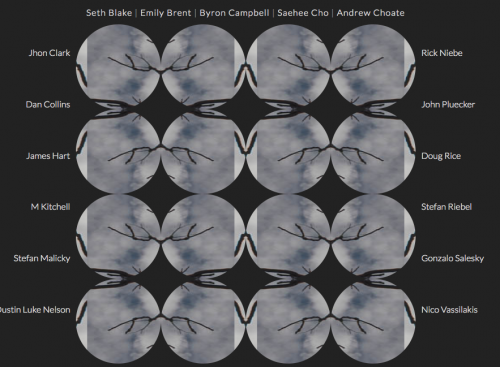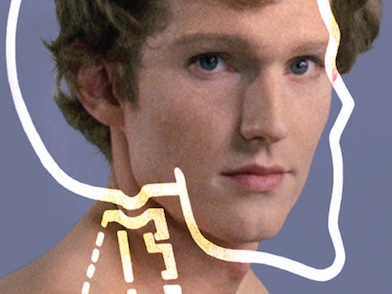Some archaeology

In 1974, Sol LeWitt made a series of “incomplete open cubes,” portraying all the possible configurations an incomplete cube could have. His early sketch studies of them resemble cuneiform, the rise from babble to meaning. The conceptual minimalist wasn’t interested in human volition, discretion, or gesture, but rather, the algorithmic underlining of things. Immune to will, art was granted a meaningless presence that could become beautiful on its own. Some of them sold at Christie’s between $50,000 – $250,000 dollars, depending on how mutated or fucked-up each one was. The more amputated the violated square looked, the more it fetched at auction. In short, absence had been purchased on a sliding scale, and maids finely dusted the masterpieces in their respective homes. His 1968 “Buried Cube Containing an Object of Importance but Little Value” is supposedly buried in its collector’s backyard. LeWitt was photographed digging a hole with a shovel though, the way condemned men are oddly obedient to their imminent executor. The will to prolong life as Darwinian tic. The IKEA “Lack” side table is $9.99 if you want it in “birch finish,” and $7.99 in plain white, a color which — when not imbued with high modernist sheen — concedes to a post-industrial grim boredom, even guilt, that is always trying to find its way back into the woods. This may be Walt Whitman’s fault, who saw a “journey work of the stars” in a blade of grass, so I have him to blame for my meandering horoscope. Everything looks so beautiful in IKEA’s labyrinthian showroom, until you haul a box full of flattened glued sawdust home. The instructions are made for the illiterate; one’s personal language reverts grunts and squeals, reduced to their hands and knees. Hours later, if you’re lucky, the representation of an ideal object has manifested inside your home, itself turned into a new object by its very representation of the original. Every clone in every home is theoretically the same, except secretly broken in unique ways. You come across a bag of screws, and hope they were extra. My personal lack holds an alarm clock for which I lament waking up, each day a slow parody of the one before, my bones buried under flesh, the birch now slowly peeling off. Imagine a species after this one coming across these objects, excavating their parts from the rubble, and trying to put the pieces back together. It might be hard to tell what was missing. The sifted legs resemble robot femurs, as if making the perfect person. They decide we were sloppy aliens. We often lied about what was underneath. In need of a place to rest our keys, and minds, we brought the strangest things home.
How To Be A Critic (pt. 2)
Young Critic Engaging with John Lavery’s
“Portrait of Anna Pavlova” (1911)
In Part One of this series, I introduced a network of ideas aimed at rethinking our approach to criticism by foregrounding observation over interpretation, and participation over judgment, by asking what a text does rather than what it means. This time, I’ll expand on those ideas.
The young girl in the picture above demonstrates an angle on the critical practice I proposed. She also brings to mind what Nietzsche said about the ideal reader in Ecco Homo, “When I try to picture the character of a perfect reader I always imagine a monster of courage and curiosity as well as of suppleness, cunning and prudence—in short a born adventurer and explorer.”
The critic as monster, performer, participant, adventurer, explorer.
“Shadow Man: A Biography of Lewis Miles Archer,” edited by Gabriel Blackwell
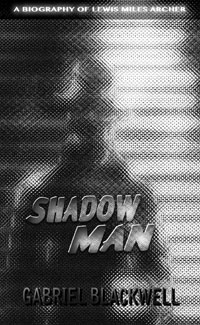 Shadow Man: A Biography of Lewis Miles Archer
Shadow Man: A Biography of Lewis Miles Archer
Edited by Gabriel Blackwell
Civil Coping Mechanisms, October 2012
286 pages / $13.95 Buy from Civil Coping Mechanisms or Amazon
Is there a form called smart noir? There should be. In Shadow Man: A Biography of Lewis Miles Archer, published by Civil Coping Mechanisms, Gabriel Blackwell both conducts and writes the story. As the meta-writer and the meta-detective, he’s inside what happens, and outside, all at the same time. Blackwell claims, rather coyly, to be the “editor” of Shadow Man: A Biography of Lewis Miles Archer, and he is listed as such on the cover. But like a savvy gumshoe, Blackwell is too humble—and too sneaky—to list his skills upfront. His project is to blur lines between fiction and nonfiction; genre and form; noir and innovation.
We should consider ourselves forewarned meta-readers because Blackwell, as editor of this book, as author and researcher, is the ultimate shadow man. Blackwell disappears into the story and lets us know that he will be seen—and not seen:
We read to name that “pink elephant” in the room and, in the manner of noir, to find that missing femme fatale in the bar. The reader’s suspicious impulse might be to sit with the book and with Google, to search what is fiction, nonfiction, or imagination. We are inside the story as it unravels and outside the story as it is revealed. The story becomes confounding, like “a maze”:
I soon gave up the inter-textual Google approach to reading Blackwell and let myself be drawn into the cheeky editor’s devilish and impish fun. Those who are unseen and unknown are often the characters of literature that might reveal the most, were we to bother to ask. Blackwell bothers. He uses this knowledge, his questions, to great effect, illuminating a man who existed and didn’t exist, someone who disappeared with nary a backward glance.
February 15th, 2013 / 12:00 pm
[out of nothing] #6: in the mirror, a sleep, a spectral nothing
The newest issue of [out of nothing] is available now!
[out of nothing] #6: in the mirror, a sleep, a spectral nothing
And if I don’t say so myself, it’s quite beautiful (and interactive)!
(Yes, transparency: I’m one of the co-editors)
The issue this time was designed by co-editor Eric Lindley, with emcee Douglas Kearney,
and features work by:
Seth Blake
Emily Brent
Byron Campbell
Saehee Cho
Andrew Choate
Jhon Clark
Dan Collins
James Hart
M Kitchell
Stefan Malicky
Dustin Luke Nelson
Rick Niebe
John Pluecker
Stefan Riebel
Gonzalo Salesky
Nico Vassilakis
***
And this also means that [out of nothing] is accepting submissions for #7. Check out the interactive call for submissions here.
Dressing Up Maggie Nelson
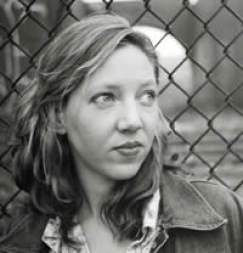 I first became of aware of Maggie Nelson when I overheard two feminist girls debating whether or not what “she was doing” was ethical. I did not know what “she was doing,” nor did I care. I was forbidden to read her. She was a girl, and for quite a bit it was against the law for me to read girl poets besides, of course, Sylvia. The ban against girls began when a teacher (another feminist, and certainly not the catty, commendable kind) assigned us the Sharon Olds’s poem “The Language of the Brag.” The poem perpetuates the base boast: “I have done what you wanted to do, Walt Whitman, / Allen Ginsberg, I have done this thing.” Oh bother! A demographic whose primary goal is to be like two hairy free-verse guzzling perverts will elicit neither esteem nor heed from me. But then another teacher (a boy one) suggested I read Ariana Reines. Ariana isn’t an intolerably gregarious gay and she isn’t a beatnik-hippie sodomite. Ariana is a monster. In one poem in The Cow, she munches her own poop, sips her throw up, and goes down on herself. She is “self-contained”: disciplined and exacting. She is a sword-sharp: the antithesis of the free verse commoners who are as loose and watery as Barack H. Obama’s negotiating skills.
I first became of aware of Maggie Nelson when I overheard two feminist girls debating whether or not what “she was doing” was ethical. I did not know what “she was doing,” nor did I care. I was forbidden to read her. She was a girl, and for quite a bit it was against the law for me to read girl poets besides, of course, Sylvia. The ban against girls began when a teacher (another feminist, and certainly not the catty, commendable kind) assigned us the Sharon Olds’s poem “The Language of the Brag.” The poem perpetuates the base boast: “I have done what you wanted to do, Walt Whitman, / Allen Ginsberg, I have done this thing.” Oh bother! A demographic whose primary goal is to be like two hairy free-verse guzzling perverts will elicit neither esteem nor heed from me. But then another teacher (a boy one) suggested I read Ariana Reines. Ariana isn’t an intolerably gregarious gay and she isn’t a beatnik-hippie sodomite. Ariana is a monster. In one poem in The Cow, she munches her own poop, sips her throw up, and goes down on herself. She is “self-contained”: disciplined and exacting. She is a sword-sharp: the antithesis of the free verse commoners who are as loose and watery as Barack H. Obama’s negotiating skills.
Obviously after I discovered Ariana and the rest of Rebecca Wolff’s spitfire songstresses my ban against girl poets had to be banned. This meant I could finally read Maggie, which turned out to be marvelous. Maggie is obsessed with ghastliness, terror, and the dead. She devotes “years of compulsion, confusion, and damage” writing about her Aunt Jane, a girl who was viciously murdered while returning home from college. Moreover, she’s compelled by one of the most blessed, articulate, and mischievous girls to ever be forced to live on earth… Anne Frank! “But who can guess / what Anne would have said / about the last place she went,” Maggie tantalizes. Indeed, Maggie has outstanding tastes and curiosities, so I will provide her with three outfits so that she feels fabulous in her wonderfully horrific world.
25 Points: The Notebooks of Malte Laurids Brigge
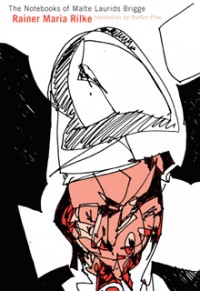 The Notebooks of Malte Laurids Brigge
The Notebooks of Malte Laurids Brigge
by Rainer Maria Rilke, translated by Burton Pike
Dalkey Archive Press, 2008
235 pages / $13.95 buy from Dalkey
1. “So this is where people come in order to live, I would rather thought: to die.” Young Malte Laurids Brigge is talking about Paris. “I have been out. I have seen: hospitals. I saw a man who tottered and collapsed. People gathered around him, that spared me the rest.”
2. Published in 1910, this is Rainer Maria Rilke’s only novel. He is considered one of the most significant poets of the twentieth century and is perhaps best known for Sonnets to Orpheus and the Duino Elegies. I was introduced to him in an undergraduate poetry workshop, taught by Peter Gizzi. He wore a beret and smoked cigarettes in class. He told me: “Read Rilke’s Letters to a Young Poet,” and so I did.
3. This is Burton Pike’s translation, issued by Dalkey Archive in 2008. It has been referred to as an “edgy” translation, a “refreshing” one that attempts to preserve the “strangeness” of the original German. Pike says: “Rilke’s prose in this novel is arresting, haunting, and beautiful, but it is not smooth…. It would be a mistake to translate his German into a smoothed-over literary English. That would be to overemphasize the existential element of Malte’s tribulations, and to obscure the radically experimental and daring nature of Rilke’s prose.”
4. The existential elements of this novel are hard to avoid, whether or not you consider this translation smooth. The preoccupations of Malte, destitute poet arriving in Paris to write, concern death and being and becoming. “The main thing was that one was alive. That was the main thing.”
5. In the city, Malte is becoming. He is “learning to see.” He says: “I don’t know why, everything penetrates me more deeply, and doesn’t stop at the place where it always used to end. There is a place in me I knew nothing about. Everything goes there now. I don’t know what goes on there.”
6. The novel is in two parts: Book One and Book Two. There are fragments and sketches and the idea of “notebooks” is apt. There are ghost stories and inanimate objects that are imbued with energy and life. Scenes from Malte’s childhood bump up against fabrications and medieval legends. It is a book that wanders and circles back on itself. It speaks of death and history and imagination. It concerns itself with fear and fever and art.
7. For the sake of poetry, Malte tells us: “One must be able to think back to paths in unknown regions, to unexpected meetings and to partings one long saw coming; to childhood days that are still not understood…. to childhood illnesses that set in so strangely with so many profound and heavy transformations, to days in quiet, muted rooms and to mornings by the sea, the sea altogether, to nights travelling that rushed up and away and flew with all the stars; and if one can think of all that, it is still not enough. One must have memories of many nights of love, none of which resembled another, of screams in the delivery room and of easy, pale, sleeping women delivered, who are closing themselves. But one must also have been with the dying, have sat by the dead in the room with the open window and the spasmodic noises.”
8. All this is necessary for poetry and Malte is in Paris to write. He is twenty-eight and “just about nothing has happened.” And so “it is still not enough to have memories,” he tells us. “One must be able to forget them, if they are many, and to have the great patience to wait for them to come again. For it is not the memories themselves. Only when they become blood in us, glance and gesture, nameless and no longer to be distinguished from ourselves, only then can it happen that in a rare hour the first word of a line arises in their midst and strides out of them.”
9. And so we are led through these scenes of memory and of historical texts and visions and legends that perhaps have become blood in him. Or are in the process of becoming.
10. In one of a series of questions Malte poses to himself and to his reader, he asks “It is possible that the whole history of the world has been misunderstood? Is it possible that the past is false because one has always spoken of its masses, as if one was telling about a coming together of many people, instead of telling about the one person they were standing around, because he was alien and died?” “Yes, it is possible.” He asks these existential, unanswerable questions, responding to each: “Yes, it is possible.” If it is possible that there are no certainties at all, no universally accepted philosophies of living and dying, then it is incumbent upon him, though “young, irrelevant” to write “day and night, he will just have to write, and that will be that.” This is the young poet’s charge. READ MORE >
February 14th, 2013 / 1:02 pm
A lot of little excerpts from and a little critical review of Tomaž Šalamun’s excellent On the Tracks of Wild Game
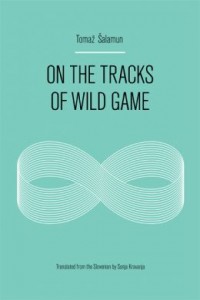 On the Tracks of Wild Game
On the Tracks of Wild Game
Tomaž Šalamun (Translated by Sonja Kravanja)
Ugly Duckling Presse, 1979/2012
108 pages / $14.00 buy from Ugly Duckling
It’s fairly disarming to think of the poetry in Tomaž Šalamun’s On the Tracks of Wild Game as over thirty years old. The poet’s approach to and manipulation of language is frequently unexpected, exciting. Fresh. He sets the bar, here, not only as we look back retrospectively on what the poetry world was approaching at the end of the twentieth century, but also as we ourselves presently work to create and maintain unique, innovative voices. I can imagine this book would generate about as much enthusiasm and dialogue, if published tomorrow, as it has as a translation. The work marks a pivotal appreciation for the Slovenian writer, but more importantly to literature outside the Western canon in general.
The brevity of the majority of the poems is particularly exciting. Šalamun strikes hard with the saying as much with as little as one is able. To me, the untitled poems, fleeting yet devastatingly moving in their images and volatile turns of language, reminded me of Bashō and other Japanese poetry I’ve read translated by Kenneth Rexroth.
The simplicity drives the purpose behind the works. Šalamun is able to transform the direction and force of these moments usually in one or two words. Notably it is the function of the ending, which takes a good poem and makes it an awesome poem. “When will I be captured / by the breadth of this honey?” (8) and “where did your women hide / as you fled to this tree?” (9) are early examples of how powerful a tiny image, a markedly heretofore unestablished or dramatically appearing image is responsible for the weight and reaction of the poem. Ending, here, on a question, is complex: it operates as a turn from writer to speaker to reader, an introspection on the speaker’s part, and an endowment of agency and participation from the literary context to the reader.
February 13th, 2013 / 2:41 pm
Spencer Madsen on “Indie” and “Small Press”

Monkeybicycle: What does “indie” or “small press” mean to you? What do you think of such classifications and distinctions?
Spencer Madsen: I immediately think of Roxane Gay. I think of complaints about not enough people reading or not enough people buying books or too many books being published. I think about the word ‘writerly’ and the distinction of being ‘serious’ literature. I think these classifications serve to make reading books more insular and less exciting for people. The word ‘indie’ always evokes for me a kind of club that you have to join to engage with. I’d like to bypass that by avoiding adjectives or the temptation to define the press in a verbal way. I don’t want Sorry House to be At The Forefront of Independent Literature or The Home Of Avant-Garde Poetry. I want it to be a thing like any other thing. A glass of water doesn’t need an about page. It holds water.
– Spencer Madsen, from Monkeybicycle interview re his new press, Sorry House
Brian Evenson Gives Advice for Future MFA Applicants
Advice for Future MFA applicants:On a more serious note, now that I’ve almost read through this year’s batch, here’s the advice I’d give off the top of my head to future MFA fiction applicants. Most of the applicants were interesting people and trying hard and it’s deeply appreciated, particularly when I’m reading so many applications. I don’t think any of the applications I read this year had a single malicious bone in their body. But here are a few things that I would want to be told if I was thinking about applying. Please feel free to steal, revise, mutilate, or dispute:1. Turn in your very best piece of fiction. This really, really matters to me, more than anything else. If I love a piece of writing, I will fight for it, and am willing to overlook a multitude of other sins.2. Better to turn in one shorter excellent piece than a good piece and one bad one. Don’t turn in work just to max out the page limit. And if you’re finding yourself trying to cram all sorts of things into the page limit by changing the font and single-spacing, then step back and take a deep breath and think again.
3. Don’t try to pretend you’re something you’re not. Most of you don’t, and those of you who do don’t do it maliciously, but just kind of slowly convince yourself into it as you write and rewrite your application. Look, it’s easy to tell if you’re faking. So don’t fake.
4. Be honest, but “we’re dating and getting serious” honest rather than either “First date honest” or “Now that you’ve proposed, here’s all the stuff you need to know about me (like the fact that I killed my first wife)” honest. You can and should talk about your struggles and successes and trials and etc., but in moderation.
5. In the personal statement, write about yourself in a way that allows us to get a real sense of you and the way you are now, right now, and where you’re going. If you feel you have to go back to childhood to do that, that’s okay, but if I go away with a better sense of how you were when you were in 2nd grade (or whatever) than how you are now, that’s not good.
6. Read interesting things and learn how to talk about them in interesting ways. Read, read, read. And read eccentrically. Take chances. There’s no reason, no matter what your job or your circumstances, that you shouldn’t be reading an interesting book every week or two, and that’ll do a great deal for your development as a writer and as a person. It’s okay to let us know what books led you to writing, but better if we find out what books you continue to go back to and who you’re interested in now.
7. Don’t pretend to have read something that you haven’t read. Don’t google the faculty at a program and then try to include a line in your personal statement that suggests what their book is about. This rarely works, and as a result usually does more harm than good.
8. We’re interested in knowing what makes you unique, but within reason. And even if you have a great set of experiences and are incredibly interesting and we’d love to have an 8-hour long coffee with you to learn about your experiences running Substance D. from the American camp to the Norwegian camp in Antarctica, if your writing sample isn’t good enough you won’t get in. There comes a time when you need to choose to work on the writing instead of getting life experience as a carny.
9. If you already have an advanced degree, you have to explain convincingly why you want to get another, and why we should give this opportunity to you rather than to someone else. If you already have a PhD, we need to be convinced that this is the right thing for you and for us, and that you’re not just collecting degrees. But, honestly, the default acceptances for MFAs is usually (but not always) someone who doesn’t yet have an advanced degree. We’ve taken people with advanced degrees in our program, but it’s very much the exception rather than the rule.
10. If you already have a book out, same thing. Are you serious about improving your writing or do you want to treat this as a sort of an artist colony? If the latter, well, I’d suggest an artist colony: they’ll feed you, and we usually won’t. If I get the impression that you want to get the MFA mainly to have a teaching credential, that can be one or more strikes against you.
11. MFA programs make mistakes. We don’t always see the potential of people, which may be partly our fault and partly your own. Do everything you can when you put together your application to make sure that the fault is on our side rather than yours. But also remember: any really good program ends up with many more people they’d like to admit than they actually can admit. When it comes down to that final cut, it’s very very hard, and we’ll have to let people go who, ideally, we’d love to have come. So, if you don’t get in, don’t take it as a judgement. To our shame, we’ve turned down many great writers before, and probably will again. But fingers crossed that it won’t be you…
Good luck!
Best,
Brian
The collected films of B S Johnson are finally getting a video release
Entitled You’re Human Like the Rest of Them. Both DVD and Blu-Ray formats (Region 2 / PAL). Comes out on 15 April. Includes:
- You’re Human Like the Rest of Them (1967, 17 mins): multi-award-winning tale of a teacher confronting his own mortality [click here & here for more info]
- Paradigm (1968, 9 mins): William Hoyland gives a performance of supreme virtuosity in this arresting experimental film
- The Unfortunates (1969, 15 mins, DVD only): Johnson brings aspects of his book to life in this short BBC TV film
- Up Yours Too Guillaume Apollinaire! (1969, 2 mins): humorous animated take on the calligrams of the famous poet and eroticist
- Unfair! (1970, 8 mins): provocative agitprop piece with Bill Owen
- March! (1970, 13 mins): documentary made for the ACTT union
- Poem (1971, 1 min): poignant short set to the words of Samuel Beckett
- B. S. Johnson on Dr. Samuel Johnson (1972, 26 mins): a learned and full-bodied appreciation of the great writer
- Not Counting the Savages (1972, 29 mins, DVD only): Mike Newell s adaptation of Johnson’s intense play, made for BBC TV’s Thirty Minute Theatre
- Fat Man on a Beach (1974, 39 mins): part documentary, part creative exploration, this was a highlight of 1970s TV programming
This should be enough to make anyone’s Fat Tuesday.
& if you haven’t read B S Johnson, then what can I say but you’re missing out.
Bonus movie review: I watched the 2000 movie adaptation of Christie Malry’s Own Double-Entry, one of my all-time favorite novels. I’m sorry to report that it was awful.

